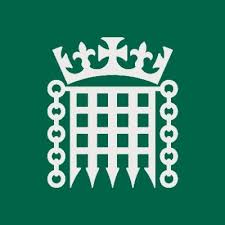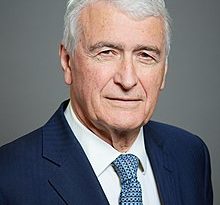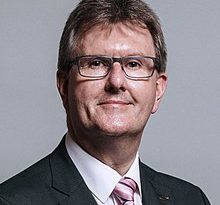John Hynd – 1967 Speech on the Transport Bill
The speech made by John Hynd, the then Labour MP for Sheffield Attercliffe, in the House of Commons on 20 December 1967.
Unlike the hon. Member for Weston-super-Mare (Mr. Webster), I rise to give my warmest support to the Bill. The hon. Member for Worcester (Mr. Peter Walker) suggested that the Bill was the result of the thinking of an extreme Left-wing Socialist. He will probably be surprised to find the Bill receiving unanimous support on this side of the House from all sections of the Labour Party.
I support the Bill because it accepts many of the principles which many of us have been advocating for many years. It accepts the principle that we can no longer go on with our overcrowded roads, with their daily death toll, while our railways are under-used. It accepts the principle of reducing the unfair charges which the railways have had to pay for far too long. It does this by proposing to write off the debts which have been accrued by the railways, largely because of these unfair charges. It also accepts the principle of assessing the true costs of transport under the different methods which are available to us.
I agree with the hon. Member for Worcester that it is a pity that we have been given only one day to debate a Bill of this size. This Measure contains at least four other Bills. I do not know why he should complain about this, because for this problem to be tackled comprehensively, if this Measure had not been introduced, four other Bills would have had to be brought before the House. The hon. Gentleman seems to be complaining about my right hon. Friend’s productivity in bringing these four Measures together in one Bill so that everyone can balance one aspect of the problem with another when these issues are discussed in Committee.
Why is my right hon. Friend being so modest about road haulage charges vis-à-vis those in the great centres of private enterprise which are so often lauded by hon. Gentlemen opposite, for example, West Germany? Many of us would have liked to have seen a much more realistic approach, perhaps on the German lines, but no doubt this will follow the discussions on the true costs.
The hon. Gentleman repeated the usual charge that no such Bill as this should be introduced when the economy is in such a parlous state. It is just when the economy is in a parlous state that it is necessary to get on with reorganising the very basis of our economy, and in particular reorganising this great national service on which our economy and industry depends.
The hon. Gentleman also repeated, in slightly different terms, the charge made from the Front Bench opposite during our last debate on transport, that the Bill merely represented further nationalisation, and proposed substituting for a highly competitive industry a monolithic State enterprise….”.—[OFFICIAL REPORT, 6th November, 1967; Vol. 753, c. 750.] This is being said by hon. Gentlemen who represent the party which was responsible for the establishment of public ownership of London transport to deal with the chaos which existed then. After the 1951 General Election, one of their first acts was the nationalisation of MacBrayne Steamers in Scotland, part of the transport industry. Hon. Gentlemen opposite were also responsible for keeping the greater part of British Road Services nationalised, after their fruitless attempts to destroy it, and the reason for this was that our road haulage services had proved to be more highly efficient and effective than private enterprise had been, and even their own supporters demanded that they put an end to denationalisation.
The interesting thing to note about the phrase “substituting for a highly competitive industry a monolithic State enterprise” is that when the Conservative Party calls for sacrifices from the common people of this country, for one purpose or another, hon. Gentlemen opposite refer to us as a nation, but when they are opposing Labour or Socialist Measures they refer to us as a state. This is supposed to be an epithet, but it refers to the same thing.
The hon. Gentleman talked about a highly competitive industry. It is interesting to note that he did not say a “highly successful competitive industry”, a phrase which one usually hears from the other side about private enterprise. The reason for this is that it has not been a highly successful competitive enterprise in any sector of the national transport scheme.
It may be that the hon. Gentleman is too conscious, of the fact that the present situation is a direct result of too much interference and hesitation by Tory Governments during the 13 years from 1951 to 1964. The Tory Government were never tired of praising the efficiency and enterprise of the British Transport Commission, but the hon. Gentleman is aware that the British Transport Commission, and the railways themselves, were, for the first time, earning a profit in 1951–52, when the Conservative Government took over and started interfering with them? This is where and when the story of the growing deficits began, and hon. Gentlemen opposite know this only too well.
In 1958, hon. Gentlemen opposite were claiming that but for the temporary economic recession at that time the B.T.C. would have been “right on target”. Three years later, in November, 1961, they were telling us that despite the growing deficit in the railways’ accounts everything was going to be all right. They chided those of us who had been talking of transport as a social service with the fact that if such wild ideas were put into practice we might have vast deficits amounting to as much as £100 million a year. The Minister then said, “We believe we have got the balance right”. How did they get the balance right? The right balance, according to what was said in introducing the 1962 Bill, was a loss not of £100 million but £150 million, with an estimated £160 million for the following year, followed by a loss of £134 million in 1963 and £121 million in 1964—and now we understand that we are faced this year with a loss of £153 million.
The story of deficits in the railway industry began under a Conservative Government, and these deficits were maintained under Conservative Governments. We are therefore delighted that we are now reaching the point where we can say goodbye to this sorry story, which was described by a Tory Minister as “the right balance”. Incidentally, in 1961, after Dr. Beeching’s appointment, we were promised enormous savings to balance these deficits. During the six years since that time the savings arising from these wholesale railway closures have amounted to only £17 million.
Mr. Daniel Awdry (Chippenham)
The hon. Member is expressing delight that the railways will be relieved of this deficit. Does not he appreciate that the deficit is being wiped out purely by a currency device?
Mr. Hynd
It is an accounting arrangement, but when a continual deficit of about £150 million, year by year, is loaded on to the railways—a deficit which will never be repaid, anyhow—it cannot make any difference if the deficit is written off and the railways are given a chance to begin to earn a reasonable profit on their activities.
We have had ample opportunity to hear what many hon. Members opposite have been saying about the closures under the Beeching regime, and we hope that they will take this opportunity of following us into the Lobby this evening.
The interesting thing is that neither in the last debate nor in this have we heard a word about any alternatives from hon. Members opposite, although they have opposed everything the Government propose. Is it that they are satisfied that the present situation should be allowed to rip? Are they satisfied that we should go on with these great deficits—£150 million a year—adding again to the existing confusion on the roads? Do not they want to do anything about this confusion on the roads, which costs so much in terms of the daily toll of lives, to say nothing about the estimated £1,000 million cost to the nation arising from delays and accidents? What is their policy? So far as we can judge from what they have said during the debate they are happy to continue with the impossible situation that they created during their 13 years of office.
I speak for many thousands of railway-men and others outside the industry in giving a warm welcome to the Minister for her courage and her practical new approach, which seeks to bring an end to the confusion and disasters of the Marples regime and restore the policy of integration of our transport services which, right from the 1920 Commission, has been the policy advocated by every independent body that has inquired into transport problems.
A Bill of this size cannot adequately be covered in the time available to a back bench speaker, involving as it does a complete reorganisation of this immense and complex industry, and containing so many proposals and involving so many facets of the industry’s activities.
I confine myself to asking the Minister one or two questions about the details of the Bill. First, and probably most important, when may we expect to receive the results of the investigation into the true costs of road and rail transport, taking into account the £179 million annually loaded on to the railways in respect of tracks and signalling, for which there is no comparable burden on road transport?
Secondly, why should not all the pending and further railway closures be suspended until such time as this assessment has been made and the true comparative costs established? Until, for that matter, the results of the review of the Regional Economic Councils will be made known? It may prove, as it has in the past, that certain lines should not be closed. For example, under the Beeching Plan the railway line to Fort William was to be closed down, although another Minister in the same Tory Government was arranging for the building of a great new factory at Fort William. In the end, they had to cancel the idea of cutting out the railway line.
This could happen again. As a result of the investigation into the true costs of road and rail transport it could be that many of the lines and services which are now proposed to be closed down will turn out to be more economical than any available alternative form of transport.
Is my right hon. Friend satisfied with the set-up, and especially with the freight services organisation? Would it not have been a much more practical proposition to restore the old British Transport Commission which, during its lifetime, proved so effective as the blanket organisation for the sectors of transport which it then covered? With all the separate organisations which now exist, or which will exist—the British Railways Board, the National Freight Corporation and Passenger Transport Authorities, to, say nothing of British Road Services, the port authority and, even, now the air services—there are bound to be clashes of interest, and decisions will have to be taken, many of them quickly.
I do not see how decisions can be taken effectively and speedily by the Minister or by an advisory council. Many situations are bound to arise in which urgent decisions are needed at top level which cannot be dealt with promptly and adequately by a Government Department, and which ought to be dealt with by an overall body. I would have preferred to see the restoration of the British Transport Commission.
My next point concerns the separation of the National Freight Corporation from the railways. Sufficient has been said about this to make it unnecessary for me to go into details, but nobody has yet made the point that the Bill provides that the National Freight Corporation will cater for traffic originating by road and the railways for traffic originating by rail. Is the Minister satisfied that such a distinction can always be clearly drawn? Those with practical experience of transport know that it is not always easy to say where the traffic substantially originated. If a question of this kind arises, who will decide? If it is to be the Freight Integration Council it will not be adequate. It will not work speedily enough. I ask my right hon. Friend to look closely at this question.
I agree with what has repeatedly been said that the separation of the N.F.C. from the railways is taking from them one of the services upon which everyone had assumed they would largely depend for their financial viability. In the last year traffic increased by about 400 per cent., representing £2½ million. We understand that it will treble next year, if things continue as they are going. This must be a serious blow to railway finances. I do not understand the object of separating it from the railways, which are quite capable of managing the freight services.
Finally, there is the question of safeguarding the interests of both the railway employees and the public. It is true that the Bill proposes a certain extension of opportunities for appeals to the T.U.C.C.s, but most people who have had anything to do with those organisations are worried not so much about the opportunities for appeal but about their lack of powers and nothing in the Bill extends those powers to enable the councils to make more effective recommendations and take account of all the factors involved in considering whether a service should be maintained.
I know that my right hon. Friend fully realises the vital importance in this great new experiment of carrying the employees with her and bringing confidence into the ranks of the workers in the railways and elsewhere, but there is no clearly stated provision in the Bill about the rights of employees to full consultation up to the top level. What forms of consultation will be created—so far as I understand the Bill from a rapid reading, and no one could have done more in the time that we have had—are apparently to be left entirely to the Minister to decide later. She has not said on what considerations she will base decisions. This is highly important.
The unions are greatly concerned. They are already concerned about who will be catering for whom in these new centres where roads and railways will be mixed up and there will be freight liner employees, local passenger services and area passenger services employees, railwaymen, local authority employees and others. The delineation of some of these fields may be extremely difficult. It would reassure the workers affected by the Bill if the Minister made an early statement about what form consultations will take and about how the problem of who employs whom is to be resolved.
As so many hon. Members wish to speak and time is so short, I will confine myself to these questions at this stage, although I hope to have an opportunity of asking a number more later on. I hope that the Minister will consider that my questions are constructive and sufficiently important to justify an answer, since they urgently concern many thousands of railwaymen as well as others besides myself.
I repeat what I said at the beginning, that I give the Bill and its general purposes and principles the warmest possible support. I hope that it will be given overwhelming support in the Lobbies. I can assure the Minister that, given certain assurances, it will have the full support of the workers in the railway industry.



